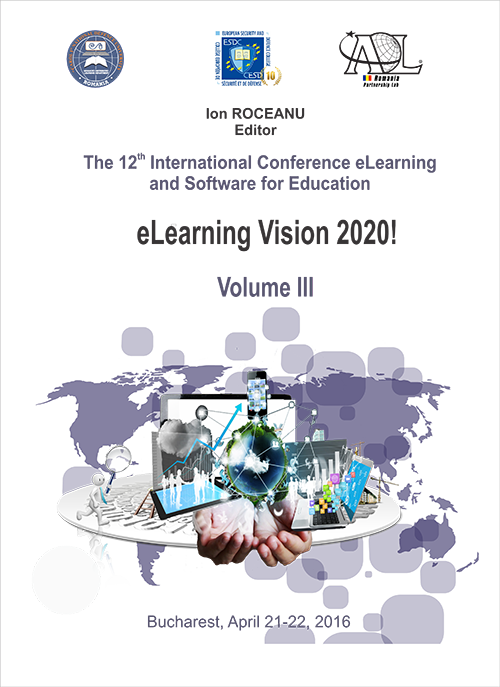RELATIONS BETWEEN LEARNING ANALYTICS AND DATA PRIVACY IN MOOCs
RELATIONS BETWEEN LEARNING ANALYTICS AND DATA PRIVACY IN MOOCs
Author(s): Malinka Ivanova, Carmen Holotescu, Gabriela Grosseck, Cătălin IAPĂSubject(s): Media studies, Higher Education , ICT Information and Communications Technologies, Sociology of Education
Published by: Carol I National Defence University Publishing House
Keywords: MOOCs; Learning Analytics; Data Privacy; Big Data; Higher Education;
Summary/Abstract: Massive Open Online Courses (MOOCs), as a new educational trend, attract worldwide a huge number of learners giving them appropriate knowledge according to personal needs. Learners are stimulated to be active participants and facilitated to create distributed learning communities through: sharing opinions and setting preferences; analyzing, annotating and translating learning materials; participating in interactive gaming exercises; communicating with other participants, tutors and guest lectures; preparing and submitting practical assignments; group working and peer rewieving; proposing other useful (open) educational resources; publishing insights on different Social Media platforms. Therefore, during participating in Massive Open Online Courses a wide variety of students’ personal and activity data are collected and used for different purposes by tutors, hosting platforms and possible third party actors, such as universities or companies. Part of this big data is processed by the Learning Analytics modules, in order to understand and optimize the learning process. The questions that arise are: - What kind of students’ private data are shared and why?, - What are the privacy models provided by MOOCs?, - What data is needed for Learning Analytics modules?, - Are there any third party actors processing the students’ data and why?, - Which are the relations between Learning Analytics and Data Privacy?, - Is it possible for the learners to be protected?. The paper is looking for answers of the above placed questions summarizing and analyzing the current projects and practices, best learning cases and research standpoints.
Journal: Conference proceedings of »eLearning and Software for Education« (eLSE)
- Issue Year: 12/2016
- Issue No: 03
- Page Range: 13-20
- Page Count: 8
- Language: English

